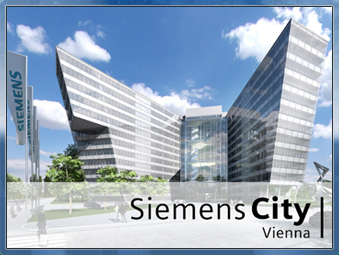Siemens plans to establish
its new logistic center in Vienna this summer – instead of Budapest. Electronic
products made by Siemens in Far East will be allocated to Central European
markets through port of Rotterdam from Vienna.
Nevertheless, considering
only the geographical distance[1], through
Adriatic Sea Budapest seems to be a better solution to access the Central
European region at first sight. However, the result of Budapest’s and Vienna’s
competition for the new logistic center is ended with the triumph of capital
city of Austria. That is an obvious evidence of the importance of infrastructure
(”one and a half geography”) and the nature of trade interactions (”second
geography”).
The location
choice of a firm depends on many components of transaction costs including for
example taxation, transporting infrastructure, openness or even trust as well.
Thus, to influence the location choice of firms in order to affect the spatial
distribution of economic activity it is not enough to enhance one factor of
several and to only attempt to attract firms lower tax rates. The lower tax
rate without excellent infrastructure and business friendly environment is
absolutely worthless and it simply cannot compete the agglomeration forces of
those places where these factors have been already there.
However, even if the development of all determinants take place in parallel with collaborating of public and private sector it could easily happen that after investing a huge amount of money nothing happens by a certain point because of the non-linear nature of the cost of changing the spatial distribution of economic activity. So assume that the government charge low taxes on firms and ensure doing business via increasing trust among investors and showing secure picture of future (instead of charging retroactive taxes and introducing new budget plans almost on a weekly basis), moreover develop (or rather stimulate the business sector to invest in) transporting infrastructure both in railway and in road transport, it is possible that despite the effort of changing the economic distribution the development policy seems to fail. Considering the non-linearity and put differently the former thread, it could be also possible that even a little developing expenditure can cause a huge effect after reaching a certain point in decreasing of transaction costs.
Going back to
the case of Budapest, it is obvious, considering the former line of thinking,
that it does not matter the first geography in itself for Siemens to find the
optimal locational solution to build the new hub between the input from Far
East and the Central European consumers. And even the lower corporate tax (19%
versus 25%) is not enough to attract a firm. Comparing the infrastructure
between Rijeka and Budapest to Rotterdam and Vienna, moreover the openness and
business environment, it becomes immediately obvious the decision of Siemens.
To transport the electronic products from Rotterdam to Vienna compered from
Rijeka to Budapest is much faster because of firstly the more developed
transport infrastructure and secondly giving the fact that Croatia has not been
the member of EU yet which means that Siemens should have take into account the
time delays caused by customs. Finally, thinking of openness, trust and secure
future Hungary and Austria is almost incomparable. Who wants to invest in a
country where the government one day to the next charges brand new taxes and
introduce contradicting development plans and announces economic independent
war towards the ”extortionate foreign investors”? I think the answer is
obvious.
The lack of trust is especially hard to measure although
it definitely can cause huge losses to the trade of a whole country and reduce
the effect of developments of transporting costs and attractive taxation
system. All in all we should bear in mind that decreasing transaction cost does
not only mean reducing transportation cost and charge lower taxes. Without
predictable and secure future picture and business friendly business
environment the attempts to attractive firm location is just wasted money.
Norbert Czinkán
[1] The distance between Rotterdam
and Vienna is 1161 km whereas between Rijeka and Budapest is 506 km according
to Google Maps data.













0 comments:
Post a Comment